Why Mexico paying for Trump's 'wall' never actually made sense
After a 35-day shutdown and a national emergency declaration, President Donald Trump now has a path for building a “wall” on the U.S.-Mexico border.
However, it’s helpful to recall that on the campaign trail in 2015 and 2016, Trump repeatedly asserted that Mexico — as opposed to U.S. taxpayers — would pay for the highly expensive project.
In a March 2016 memo, the Trump campaign outlined his first and only detailed plan for getting Mexico to pay for the wall: The administration would cut off billions of dollars in payments — or remittances — that immigrants send home as a tactic to bully Mexico into paying for the wall.
Experts explained to Yahoo Finance why Trump’s only explanation for how he would get Mexico to pay for his wall didn’t make a lot of practical sense.
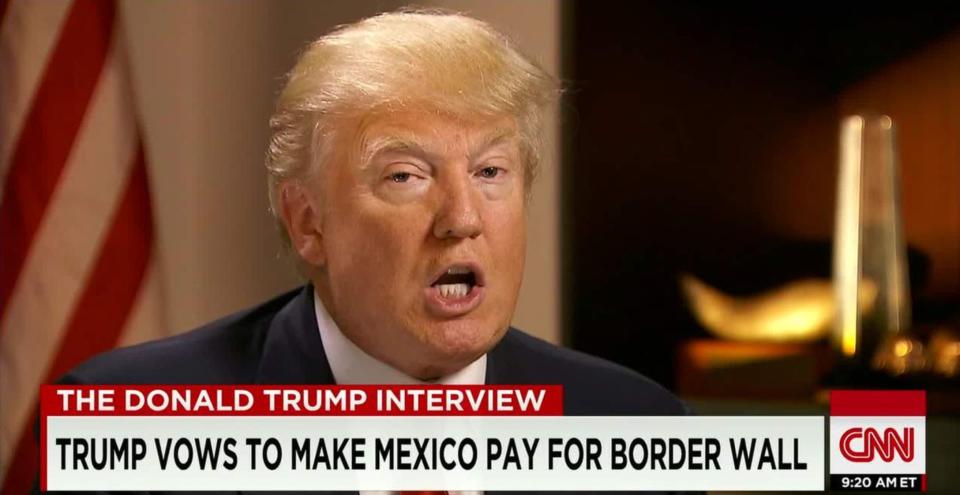
‘No alien may wire money outside of the United States unless ...’
About 24 million Mexicans live in the U.S., according to Mexican government data, and the World Bank estimated that those immigrants sent home about $28 billion in 2016. That rose to an estimated $30 billion in 2017.
“Any attempt to seize the remittances from such families would be devastating,” Vanda Felbab-Brown of the Brookings Institution noted in 2017. “Fluctuating between $20 billion and $25 billion annually during the past decade, remittances from the United States have amounted to about 3% of Mexico’s GDP, representing the third–largest source of foreign revenue after oil and tourism.”
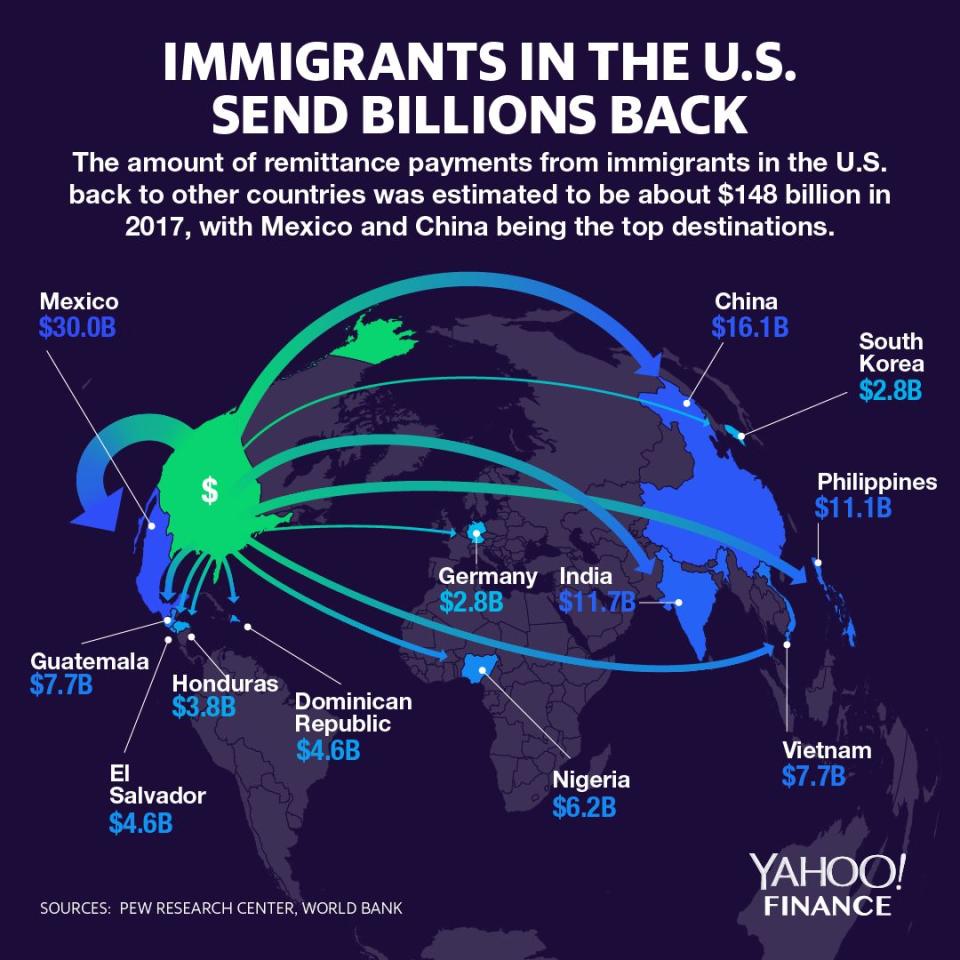
Felbab-Brown added that for some of the poorer families, “the money represents as much as 80% of their entire income.”
Trump’s basic plan was to hold those payments hostage.
The March 2016 memo asserted: On day 1 promulgate a "proposed rule" (regulation) amending 31 CFR 130.121 to redefine applicable financial institutions to include money transfer companies like Western Union, and redefine "account" to include wire transfers. Also include in the proposed rule a requirement that no alien may wire money outside of the United States unless the alien first provides a document establishing his lawful presence in the United States.
The proposal above would have theoretically modified a rule under the USA Patriot Act — which is aimed at stopping money laundering and terrorism financing — and Trump would essentially make it illegal for people to send money without demonstrating proof of legal residence.
“On day 2 Mexico will immediately protest,” the memo posited. “On day 3 tell Mexico that if the Mexican government will contribute the funds needed to the United States to pay for the wall, the Trump Administration will not promulgate the final rule, and the regulation will not go into effect.”
The net effect, according to Trump’s plan, would be to starve Mexico of money it receives through wire transfers or remittances.
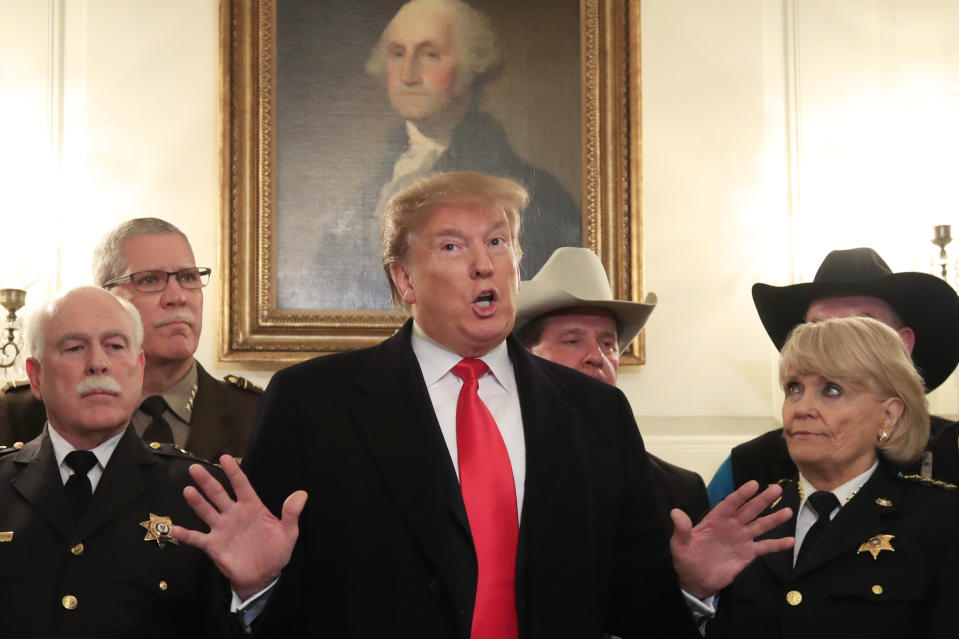
‘It didn’t make a lot of practical sense‘
However, the idea never materialized once Trump took office.
“It never entered into a vetting process once Trump took office… because it didn’t make a lot of practical sense,” National Foundation for American Policy Executive Director Stuart Anderson told Yahoo Finance adding that implementation would not have been feasible.
“Just think about what would the process be,” Anderson said. “It was abandoned because it just didn’t seem like it was possible to use coercion to make Mexico do that.”
The difficulty in policing money transfer flows is known. The Government Accountability Office, which had published a report on the topic in January 2016, suggested that the industry could lose business if it started to do so because of the additional work of documenting each customer.
“One industry association representing community banks added that it is especially difficult for smaller institutions that do not have the resources to spend time and money to monitor and examine riskier customers that require enhanced due diligence,” the study stated.
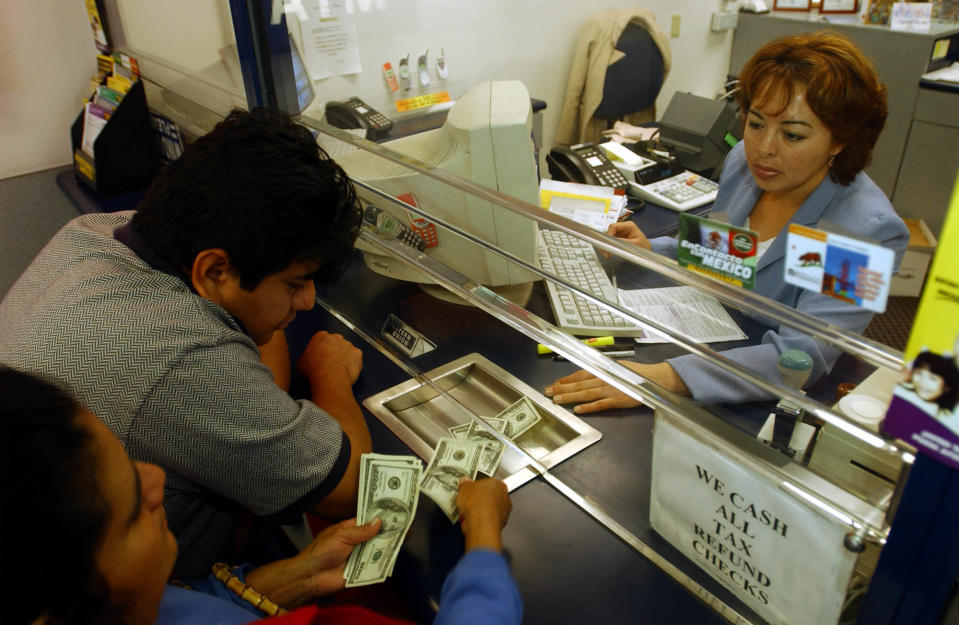
And apart from wire transfer agencies, the vast expanse of the money transfer apps also presents a significant challenge.
“The amount of regulation you’d have to introduce into these internet transactions is significant,” Anderson said, adding: “I think there would be a number of unintended legal consequences, including interfering with a significant number of legal transactions that work well with the people who transfer money.”
Anderson also noted that people would eventually find workarounds, which would defeat the purpose.
‘Trump’s team abandoned the idea when they realized it would never work’
While the plan has since been abandoned — and scrubbed from his campaign website — New York University professor Roy Germano told Yahoo Finance that it wasn’t even an entirely new idea to begin with.
“I don't think it was ever a well-considered plan,” said Germano, who is also the author of Outsourcing Welfare. “Trump was about to become the Republican nominee for president when this was announced. People were asking for details about how he'd make Mexico pay for the wall. My best guess is that someone in Trump’s circle was familiar with a 2004 proposal by former Representatives Tom Tancredo and Dana Rohrabacher to restrict remittances to El Salvador.”
In 2004, the former Colorado congressman Tancredo and the former California congressman Rohrabacher proposed a plan to restrict remittance flows to El Salvador to change the outcome of its presidential election.
They wanted to sway the race to favor “pro-trade, US-friendly candidate favored by the Bush administration,” Germano wrote in a study that examined the case.
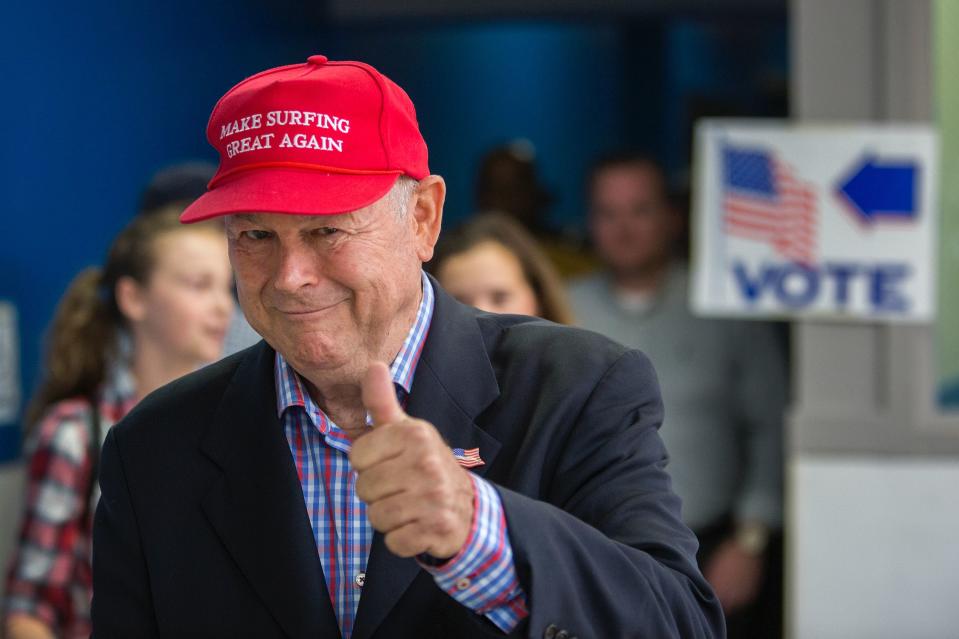
“The threat caused a minor panic in El Salvador days before an election, but ultimately went nowhere,” said Germano. “Rohrabacher made the threat again before El Salvador’s 2009 election, but no one batted an eye the second time. I imagine Trump’s team abandoned the idea when they realized it would never work.”
"Mexico will pay for the wall - 100%!” Trump tweeted on September 1, 2016. He consistently made similar promises until he was inaugurated.
After Jan. 20, 2017, the president shifted to saying that Mexico would reimburse the U.S. for the billions of dollars it would cost to build a border wall.
“I’m just telling you there will be a payment,” he said in an interview with ABC a few days after inauguration. “It will be in a form, perhaps a complicated form.”
‘Good luck with that’
Former President Barack Obama mocked Team Trump’s plan at the time.
“Good luck with that,” Obama told reporters in early April 2016, referring to the remittance restriction plan, adding that the plan was “impractical and half-baked.”
“This is just one more example of something that is not thought through and is primarily put forward for political consumption,” Obama said. “We’ve got big issues around the world. People expect the president of the United States… to treat these problems seriously, to put forward policies that have been examined, analyzed, effective, where unintended consequences have been taken into account.”
But to Trump, “immigration is a privilege, not a right… we have the moral high ground here, and all the leverage,” Obama said. “It is time we use it in order to Make America Great Again.”
Aarthi is a writer for Yahoo Finance. Follow her on Twitter @aarthiswami.
Read more:
Follow Yahoo Finance on Twitter, Facebook, Instagram, Flipboard, LinkedIn, YouTube, and reddit.


